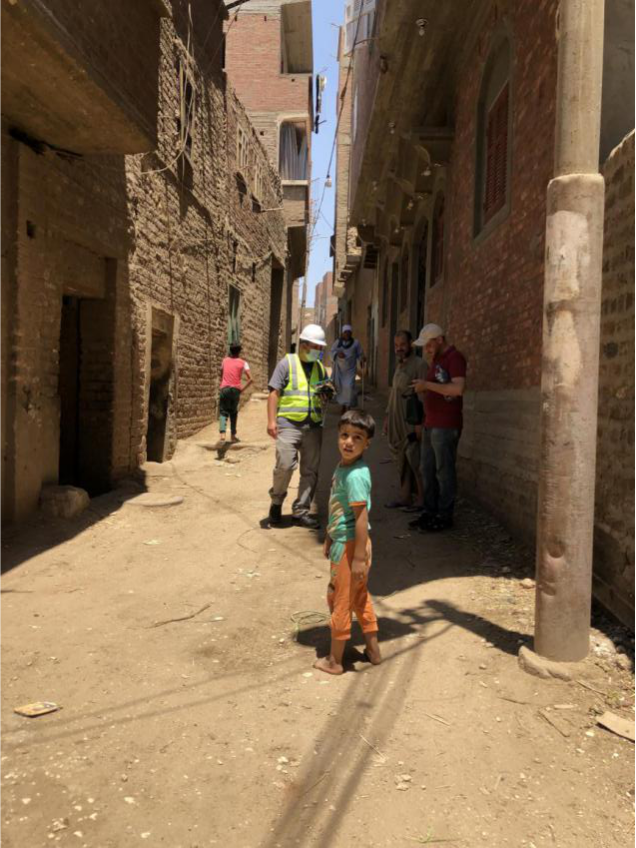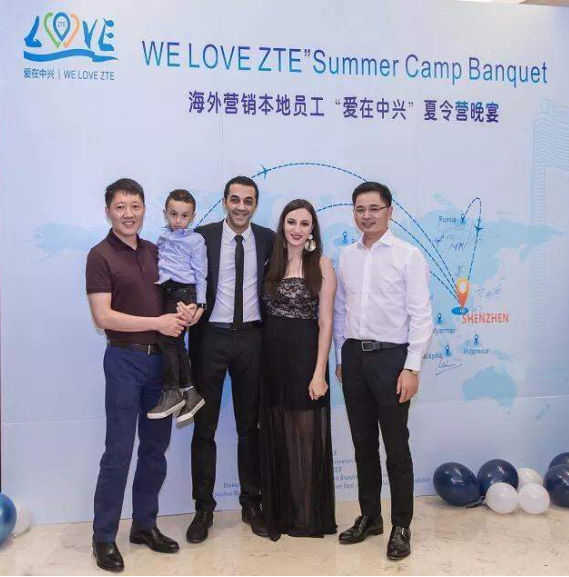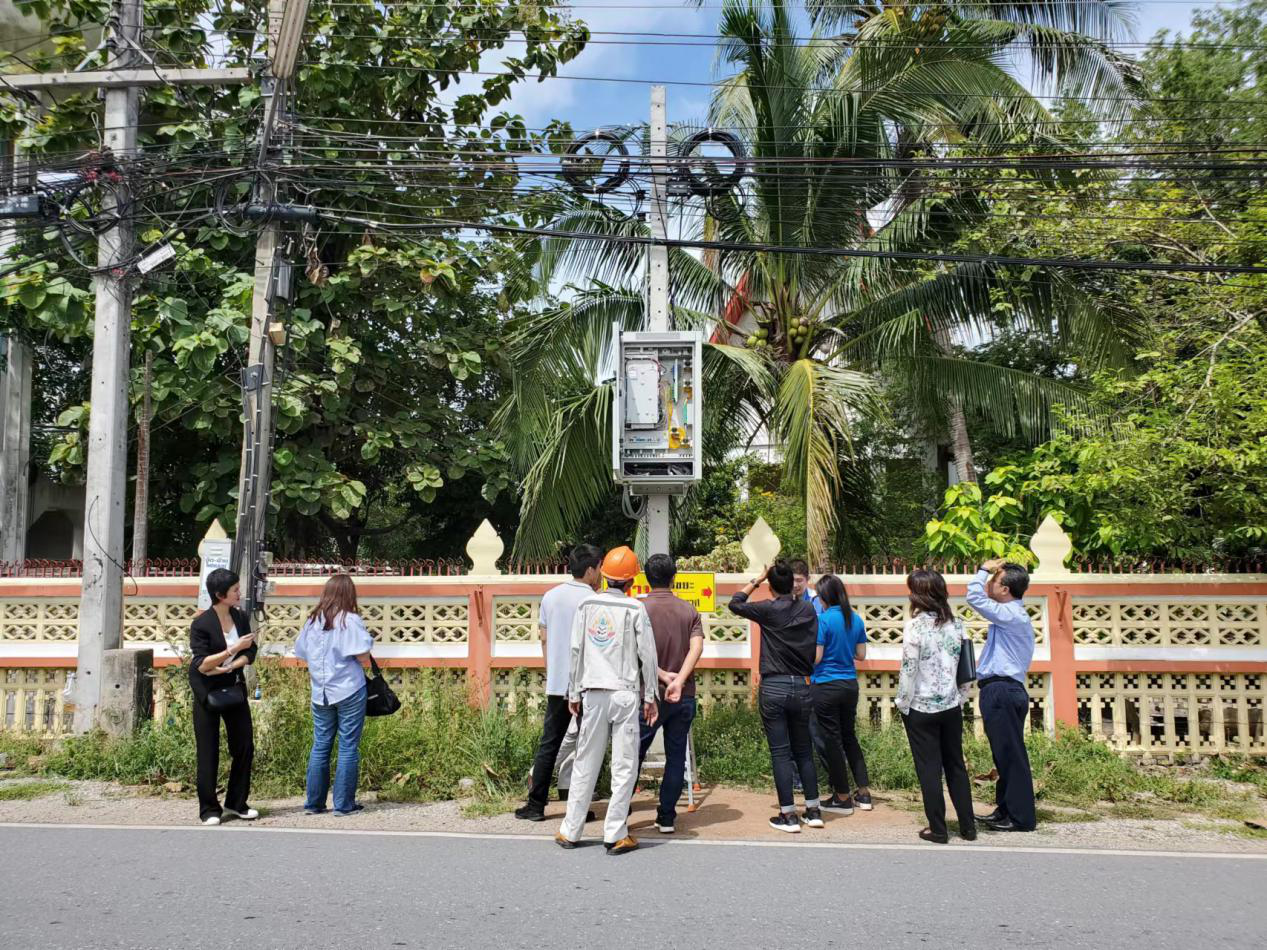According to the International Telecommunication Union, approximately 2.7 billion people worldwide lacked internet access in 2022, revealing a widening digital divide between the least developed countries and the rest of the world in terms of internet access, digital skills, affordability and other key factors.
The global digital economy is witnessing significant growth, driving diverse industries and fueling economic development. Simultaneously, it is transforming the lives of individuals worldwide. However, the imbalance of digital development persists among different countries, regions and groups. Bridging the digital divide has become an urgent task. The light of the network is brightening the future for countless households. By leveraging the opportunities presented by the Belt and Road Initiative, Chinese and foreign enterprises are actively enhancing connectivity through collaborative efforts and technological innovation to ensure that remote areas are not left behind in the digital society and people of different backgrounds share the dividends of internet development.
China-Egypt cooperation boosts "Decent Life Initiative"
On January 2, 2019, Egyptian President Abdel Fattah al-Sisi launched the "Decent Life Initiative," which is designed to provide a decent life for the most vulnerable groups in Egypt. The initiative goes beyond enhancing the quality of daily public services that the government provides to citizens. Moreover, it specifically focuses on improving the lives of rural residents, women and disadvantaged groups. This initiative is hailed as the most significant national project in contemporary Egypt in terms of its extensive coverage. Regarding communication infrastructure construction, the Ministry of Communications and Information Technology of Egypt has actively responded to the national call and promoted the project to extend internet access to all villages. In this context, major fixed-line operators in Egypt, including Telecom Egypt, have collaborated deeply with Chinese enterprises to enhance the construction of fiber optic network infrastructure and improve mobile network coverage. This partnership aims to ensure that digital services reach numerous households across Egypt.
Bishoy Sobhy, an Egyptian employee of Chinese tech company ZTE Corporation, often shares a story about his work related to a barefoot child.
The story took place during the early stage of the network access project in villages when Sobhy was involved in conducting early surveys in a village. One day, right after elementary school dismissal at noon, a group of children noticed the survey equipment in Sobhy's hands and became very intrigued. Upon learning that a network would soon be installed in their village, the children started jumping up and down with joy.
"Among them, there was a quiet barefoot child who stayed with us and followed us wherever we went," said Sobhy. "The unwavering expectation in his eyes made me aware that our work, though seemingly insignificant, was shaping an entirely new world and unlocking a future brimming with possibilities for them."

A barefoot child in the Egyptian countryside watches workers at a survey site. (Provided by ZTE)
Moreover, ZTE highly values talent development and skill transfer, creating numerous local job opportunities. ZTE has played a pivotal role in cultivating a significant pool of exceptional information and communication technology (ICT) professionals, who have been recruited by organizations such as the Ministry of Communications and Information Technology and Telecom Egypt. During the network access project in villages, 90% of the staff members were local employees. Among them is Ahmed A. Hadhoud, who joined ZTE in 2017. He has made several trips to ZTE's headquarters in China for professional training. Thanks to the guidance of Chinese mentors and the valuable experience gained from multiple projects, he has gradually grown into an outstanding project manager specializing in fixed-line networks.

An Egyptian staffer and his family participate in training-related activities at ZTE's Shenzhen headquarters. (Provided by ZTE)
Hadhoud, citing an Egyptian proverb, said that those who sow the seeds will harvest the fruits. He highlighted the valuable support he received from his Chinese colleagues, who politely and enthusiastically provided guidance on technological expertise and management experience. Through his gradual growth, Hadhoud firmly believes he has found his dream job at ZTE.
Telecom Egypt's network access project in villages uses ZTE's diverse product and networking solutions to cater to various scenarios. The project also employs the micro-duct system for fiber-to-the-home layout, ensuring network quality while maximizing cost savings. By the end of 2022, ZTE had implemented high-speed broadband service network coverage in over 1,500 villages in Egypt. This development has significantly benefited nearly 10 million people, with the average internet speed increasing from 0.95 Mbps in 2016 to 33 Mbps in 2022. As the project progresses rapidly, its social benefits are becoming increasingly evident. High-speed internet access through fiber-optic networks in the countryside allows rural residents to access the latest information, empowering them to learn and adopt new technologies. This, in turn, leads to constant enhancement in agricultural productivity and production efficiency.
China and Thailand jointly create digital future
With the advent of the fourth scientific and technological revolution anchored in smart technologies, many countries have formulated "Industry 4.0" plans. In this context, Thailand introduced the "Thailand 4.0" strategy as early as in 2016, aiming to leverage innovative digital technologies for infrastructure development, increase the added value of products, foster economic transformation and upgrades, and ultimately achieve the vision of a "Digital Thailand." Chinese enterprises have made a notable presence in Thailand's digital transformation efforts in recent years. With a focus on network construction, they have played an important role in paving the way for digitalization in the country.
ZTE and Thai National Telecom have collaborated on the Thai Village Broadband Internet Project, or Net Pracharat, in response to the Thai government's initiative for Industry 4.0. This partnership has been ongoing since 2017. The primary objective of this project is to provide remote areas with the same level of high-speed internet access as urban areas. By doing so, all Thai people benefit from internet services and information, thereby enhancing their lives and contributing to a more prosperous future. As of now, the project has installed 7,300 sites in remote areas, providing high-quality network access to over 600,000 families and more than 5 million rural residents. This significant achievement has effectively addressed the long-standing problem of limited telecommunications in remote areas.
"My children are working in Bangkok. Making video calls to them used to be difficult because the signals were always interrupted. Now, the videos run smoothly and we are able to have more communication."
"With our family now having access to a higher-speed network, our internet experience has truly improved. We are trying to sell our handicrafts online, and our children participated in free online training courses at school."
"Free Wi-Fi hotspots are available in our village. We sometimes like to gather there to chat and share what's new on the internet."
An optical fiber brings people closer and opens doors to the outside world. Local residents often cannot help but share their joy and appreciation when they encounter the project team conducting network inspections. Nowadays, rural residents are not only able to access the internet, but they can also afford it. They can now participate in a wide range of online activities, including e-commerce, healthcare, social services, and education. This diverse digital world has filled everyone with anticipation for a new life.

ZTE employees conduct a network inspection for a Thai village. (Provided by ZTE)
Built on the success of the "Net Pracharat" project, the China-Thailand collaboration has laid the groundwork for Thailand's digital transformation, marking its extensive coverage and demonstrating inclusiveness in the country's digital development. Moreover, Chinese and Thai enterprises have collaborated closely to advance digital upgrading, highlighting the strength and depth of their cooperation in the digital economy.
Thailand is at the forefront of 5G construction among Southeast Asian countries. As of the end of 2022, ZTE has collaborated with AIS, the largest mobile operator in Thailand, to expand 5G network coverage to 85% of the country's population. In addition, ZTE has worked with True, another local operator, and has successfully achieved full 5G network coverage across the islands of Thailand. Meanwhile, China and Thailand have engaged in continuous collaboration in the exploration and application of innovative technologies. In April 2022, ZTE collaborated with AIS to successfully complete the world's first 5G NR-DC (New Radio Dual Connectivity) test using sub-6G and 26 GHz frequency bands, pushing the 5G throughput to a new peak of 8.5 Gbps. In 2022, ZTE established innovation cooperation centers with AIS and True, respectively, aiming to create a globally leading platform for 5G technology verification, application innovation and comprehensive demonstration. These efforts have provided robust support for Thailand's economic development and talent nurturing.
With the digital empowerment of modernization, network connectivity is brightening up the lives of numerous households along the Belt and Road. (By Yao Bing, Zhang Ge)

On March 1, 2023, visitors walk past the ZTE booth at the World Mobile Congress in Barcelona, Spain. (Photo by Xinhua News Agency)




 A single purchase
A single purchase









